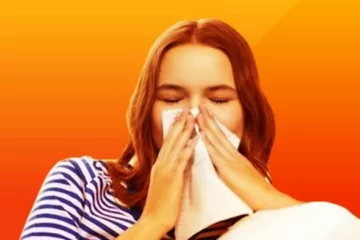Sinus Infections: What You Need to Know About Symptoms, Causes, and Relief
Sinus infections hit when the soft tissues lining your sinuses—the air-filled pockets in your skull tied to your nose—get irritated or infected. They’re pretty common and can come from viruses, bacteria, or even a bad allergy day. Let’s break it down so you can spot one, figure out what’s causing it, and get back to breathing easy.
A Quick Look at Your Sinuses
Your sinuses aren’t just space—they’ve got a job. Here’s the rundown:
- Four Pairs: You’ve got frontal (forehead), ethmoid (between your eyes), sphenoid (behind your nose), and maxillary (cheek) sinuses.
- Air Pockets: These hollow spots in your skull lighten your head and warm the air you breathe.
- Mucus Makers: Tiny cells in there churn out mucus to snag dust, germs, and whatever else you suck in through your nose.
- Germ Busters: Mucus traps the bad stuff, keeping it out of your lungs.
Types of Sinus Infections
Sinus trouble comes in two flavors:
- Acute Sinusitis: This one’s a short-term visitor. It often tags along with a cold or flu, sticking around for a week or two. You might deal with a runny or stuffy nose, pressure in your face, or a low-grade fever.
- Chronic Sinusitis: This version overstays its welcome, lingering for 12 weeks or more. It’s not just viruses—think allergies, nasal polyps (little growths), or wonky sinus shapes. Expect constant congestion, face aches, and a dulled sense of smell.
What Sparks a Sinus Infection?
A bunch of things can set one off:
- Viral Culprits: Colds or flu can kick things into gear.
- Bacterial Backup: Germs like strep can sneak in and stir trouble.
- Fungal Foes: Mold or fungi take root, especially if your immune system’s off.
- Allergy Attacks: Pollen, dust, or pet dander can clog things up.
- Dirty Air: Smoke or chemicals in the air can irritate your sinuses.
- Odd Anatomy: A crooked nasal passage or funky sinus setup can make you a magnet for these.
Signs You’ve Got One
Here’s what to watch for:
- Face pain or a heavy feeling
- Stuffy or drippy nose
- Thick, colorful mucus
- Coughing fits
- Tiredness
- Stinky breath
- Toothaches
- Can’t smell a thing
- Fever or sore throat
- Worse when you lie down at night
How Doctors Figure It Out
If you’re feeling off, here’s how they’ll check:
- A Good Look: They’ll peek at your nose and chat about what’s bugging you.
- Your Story: They’ll dig into your past colds or allergies.
- Fancy Pics: A CT scan might show what’s up inside your sinuses, helping them nail the cause and how bad it is.
Getting Rid of It
You’ve got options to kick it to the curb:
- Drugstore Fixes: Grab decongestants to unclog, antihistamines for allergies, or pain pills to ease the ache.
- Doctor’s Orders: For tougher cases, antibiotics tackle bacteria, or steroids calm the swelling.
- Home Tricks: Rinse your nose with saltwater or slap a warm towel on your face for some comfort.
Keeping Sinus Infections at Bay
Stay ahead of the game with these habits:
- Drink Up: Water keeps your nose happy and moist.
- Dodge Triggers: Skip the pollen or dust if they get you going.
- Humidify: A little moisture in the air stops your sinuses from drying out.
- Clean Hands: Scrub up to keep germs away.
- Move and Eat Right: A solid workout and good food keep your defenses strong.
- Tidy Space: Dustless, breathe better.
- Fresh Air: Crack a window open to clear out stale junk.
- Nose Rinse: Flush out muck with saline regularly.
- Shots on Time: Vaccines can fend off colds that turn into sinus messes.
- Allergy Plan: Team up with a doc to tame those sniffles.
- Live Well: Sleep, chill out, and keep stress low to stay tough.
- Avoid crowds: Skip busy spots when colds are everywhere.
- Brush Up: Good teeth mean fewer sinus surprises.
Lifestyle Tweaks
- Quit smoking—it’s a sinus killer.
- Sip water all day.
- Take it easy when life gets nuts.
- Keep your place spick-and-span and allergen-free.
- Run a humidifier.
- Get moving regularly.
DIY Relief for Sinus Woes
Try these at home:
- Saltwater Rinsing releases the gunk and opens you up.
- Steam It Out: Breathe over a hot bowl to loosen things.
- Warm Cloth: Pop it on your face for instant calm.
- Head Up: Sleep propped to drain better.
- Spicy Bites: Peppers can unclog you fast.
- Herbal Sips: Chamomile or peppermint tea soothes.
- Eucalyptus Boost: Drop some in steaming water and inhale.
- Skip the Nasty: Dodge smoke or strong smells.
When to Call the Doc
If home fixes aren’t cutting it or you’re spiking a high fever, feeling brutal headaches, or seeing swelling, get help fast. Don’t wait it out.
Busting Sinus Myths
Let’s clear the air: cold weather doesn’t cause these, and you don’t always need antibiotics—sometimes it’s just a virus doing its thing.
Allergies and Your Sinuses
Allergies can make sinus infections worse. Nailing down your triggers and popping the right meds can stop them from flaring up again.
Knowing what’s up with sinus infections puts you in the driver’s seat. With some smart moves and a doctor’s help when needed, you can shake off the misery. Everyone’s different, so tweak things with a pro for the best shot at feeling good.
Quick Q&A
- Can you catch it? Viral ones, yeah—bacterial, not so much.
- Diet fix? Healthy eating helps your immune system, but it’s not a direct cure.
- Big risks? Rarely, untreated ones can turn into abscesses or worse.
- Surgery only for chronic? Nope, it’s a last call if nothing else works.
- Flying with it? Pressure changes hurt—check with a doctor first.




